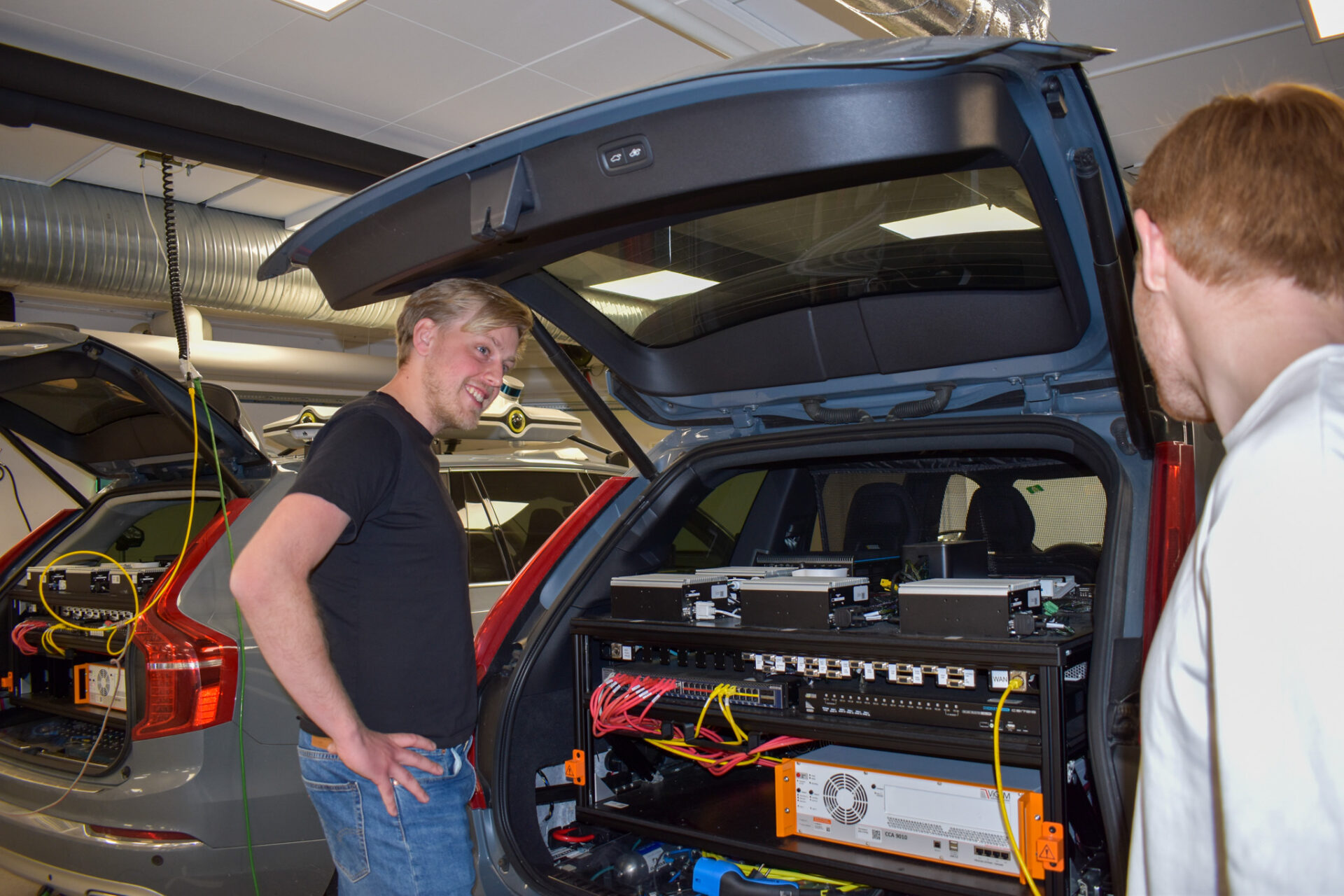Engaging in foundational research is not obvious for most companies, but for Zenseact it has proven fruitful. With a Highlight paper at the highest ranked computer vision conference, PhD students finalizing their PhD in a fast pace, and research findings being adapted straight into production – Zenseact is clear about their motivation to collaborate with WASP.
The Gothenburg-based company Zenseact develops automated driving systems. Several of their employees are industrial PhD students funded by WASP and the company sees huge advantages in engaging in foundational research:
“Many of the problems that are considered foundational research in the academic setting, are also challenges that we see in the industry.” says Christoffer Petersson, Technical Expert in Deep Learning at Zenseact, and continues:
“Formulating our challenges into academic research questions gives a fantastic collaboration between the PhD student and the academic supervisor. The progress we make, goes back into our product development as well as into our strategy going forward.”
Research findings straight into product development
This spring, a research paper by two of their industrial WASP PhD students was accepted as a “Highlight paper” to the CVPR conference, one of the globally most renown computer vision and pattern recognition conferences. And the findings from that research project were directly integrated into product development.
“Our in-house engineering team became very interested in using the technology investigated in the paper to enhance our internal closed-loop simulation environment. Furthermore, there’s been insights from the engineering team on how we can define the next set of research questions. There’s a very nice interplay between research and product development that goes both ways in these projects”, Christoffer Petersson explains.
The research paper referred to is a joint work between the WASP industrial PhD students Adam Tonderski, Carl Lindström, Georg Hess and William Ljungbergh. They are working on perception questions related to autonomous driving.
Carl Lindström explains:
“Basically, it is about building an understanding of the world around the vehicle to be able to take intelligent and safe decisions when driving.”
Adam Tonderski fills in:
“Perception is taking all the raw sensor data, like the cameras pointing in different directions, processing it, typically with neural networks, and building some kind of understanding of the surrounding world. Like, where are the other cars? Where are the lane markings? What is our position relative to this?”
Their joint project is called NeuRAD, short for Neural Rendering for Autonomous Driving. They have improved a training simulator for autonomous driving systems.
“We collect a real-world sequence and train a neural model to understand what was the 3D world that resulted in this rendering. This allows us to then replay the data. We can replay it exactly as it is, or we can replay it from different angles. So, if we had a car driving around in the street, we can drive slightly differently in the simulator. Maybe switch the lane, maybe have another car behave differently and run the realistic data from that,” says Adam Tonderski.
According to Adam, their model is simpler than earlier models and is at the same time able to process more sensor data, allowing them to make use of and render basically all sensor data from the car. Something that hasn’t been possible until now.
Life as an industrial PhD student
You get the best of two worlds, Carl and Adam agrees when talking about how it is being an industrial PhD student in WASP.
“For me, being an industrial PhD student is the perfect combination of academia and industry. I have a background as a software developer here at Zenseact, so keeping a connection to industry and to my former colleagues is very important and allows me to focus on problems that are connected to the real world.
Through WASP, I get access to very useful resources such as compute clusters, study trips and so on, but also to a huge community of other PhD students. You meet people working both in similar and completely different areas which gives you new perspectives on your problems,” says Carl.
Living in cross-worlds can however be a bit challenging sometimes with demands coming from both the company and the university. To ensure a sustainable work environment and to support the research processes, Carl Lindberg has the role of academic coach at Zenseact. His main priority is to build trust and confidence in the PhD student team. To sit together and to meet each other is crucial Carl points out:
“I try to facilitate their journey towards the PhD degree and PhD thesis. The team sits together at the office, and we meet a couple of times a week just to share how we’re doing with research and how we’re doing in general life. If you have built a habit of talking to each other it’s a lot easier when things start to go in the wrong direction, you can catch those things early and avoid putting out fires. You solve things before they are even a problem. We are very good at supporting each other, lifting each other, caring for each other. This way, we make the PhD years much more productive. It should be wonderful years doing a PhD and I try to work towards that with my team.”
Zenseact x WASP
Read more
About Zenseact
Zenseact develops AI-powered software for autonomous driving and advanced driver assistance systems. Their solution combines in-car software and cloud services to offer rigorous protection on the road. Zenseact was founded by Volvo Cars in 2020, and the teams are based in Gothenburg, Sweden, and Shanghai, China. Read more: https://zenseact.com/product/
Published: September 26th, 2024
[addtoany]


